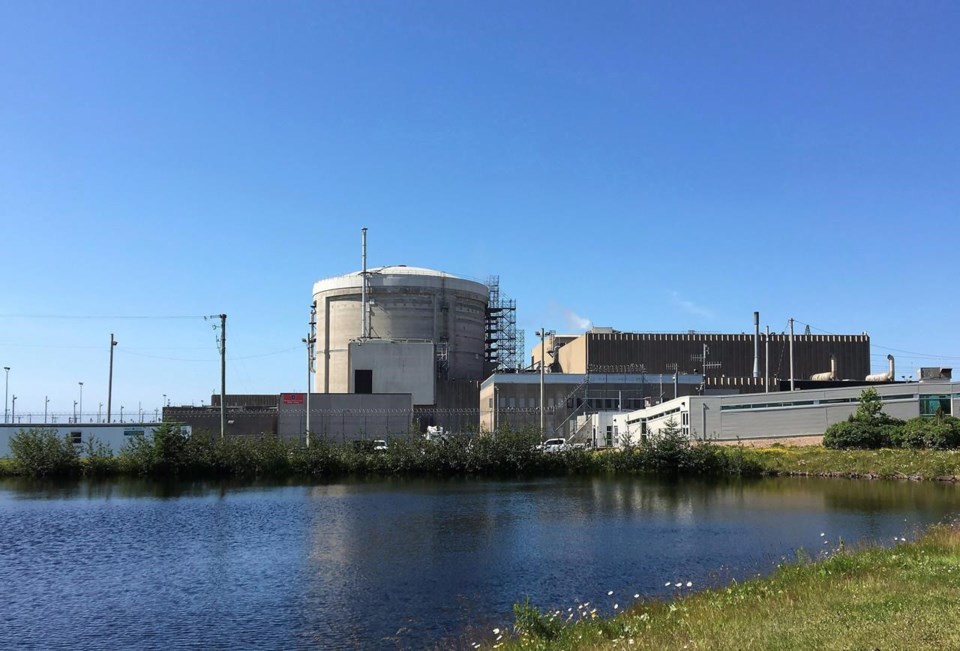SAINT JOHN, N.B. — A group of First Nations in New Brunswick has signed agreements with two companies developing small nuclear reactor technology for the province's electric utility.
The North Shore Mi’kmaq Tribal Council held a joint news conference Monday with Moltex Energy Canada Inc. and ARC Clean Technology Inc., to announce that its seven First Nations are making financial investments in both Saint John-based companies.
Jim Ward, the council's general manager, said Indigenous leaders are keen to support a sustainable project that will benefit future generations.
"With this investment, we are building a legacy for our youth, as well as our communities and the environment," he said in a statement. "We are laying the groundwork for a prosperous future.”
Under the deal, the communities will receive $2 million in share value from Moltex Energy and $1 million in share value from ARC Clean Technology, but the actual number of shares will depend on future valuations of the companies. No other details about the deal were released.
Bill Labbe, president and CEO of ARC Clean Technology, said the agreements will allow the First Nations to get in on the ground floor of an emerging technology business as it continues to raise equity for the project.
"They'll have the benefit of an early investment," Labbe said in an interview after the announcement in Saint John. "As the company grows, they'll grow with us."
The company is planning to build a 100-megawatt small modular reactor (SMR) alongside NB Power's much larger Point Lepreau nuclear generating station by 2030. The power plant at Point Lepreau generates about 700 megawatts of electricity.
Labbe said the main advantages of ARC Clean Technology's fourth-generation SMR is its simplicity and automatic-shutdown safety features. "The reactor will secure itself if it has to," Labbe said, adding that most of the parts needed for the project are available in New Brunswick.
He said the technology has been in commercial use in Russia since 1983.
Critics of SMRs say the technology is unproven and too expensive when compared with wind and solar energy.
Moe Qureshi, climate solutions manager at the Conservation Council of New Brunswick, said it's important to note that SMR technology is similar to regular nuclear power generation because it also relies on either uranium or plutonium to generate electricity, which in turn creates radioactive waste.
"It's a new technology under research and development," he said in an interview Monday. "It's a bit strange how focused (New Brunswick) is on this technology, before it's even confirmed that it works."
Qureshi said solar and wind energy are proven technologies that are far more cost effective, considering that construction of a commercial SMR could cost between $2 billion and $5 billion. He said NB Power has yet to produce any estimates.
"It's so expensive for so little energy," he said, adding that more research is needed. "Solar and wind are a fraction of the cost. You can build out much more than 100 megawatts for that same investment."
Labbe said SMRs will be competitive with solar and wind projects, and he stressed that these renewable sources will not be able to supply enough power to energy-hungry industries such as steel and concrete production.
As well, he said the intermittent nature of solar and wind energy means a more reliable source of energy will be needed.
"We don't see it as one or the other," said the CEO, whose company is a subsidiary of ARC Clean Technology Inc., based in Washington, D.C. "There's a place for wind and solar, but I don't know if it's the final solution for our energy needs."
The latest report from the Intergovernmental Panel on Climate Change says nuclear power expenses have grown because of rising construction costs and project delays, but the panel says it remains an option for some countries trying to reduce emissions.
In February, Canada pledged $29.6 million over four years to study and develop supply chains for SMRs. And in April, Prime Minister Justin Trudeau insisted Canada was serious about developing nuclear technology.
Federal Environment Minister Steven Guilbeault, a former environmental activist, was once opposed to nuclear energy but now says it is needed to keep global warming in check.
This report by The Canadian Press was first published Sept. 25, 2023.
— By Michael MacDonald in Halifax
The Canadian Press



